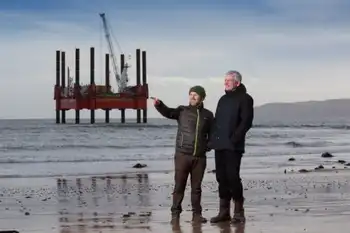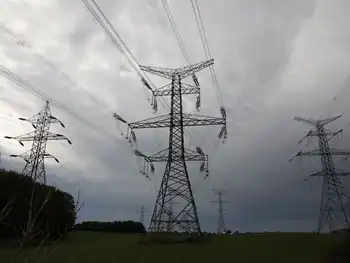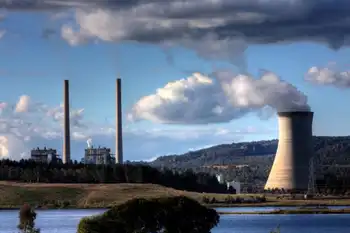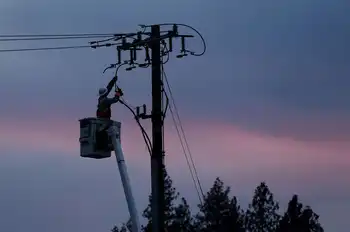States hammer FERC over regional grid operators
STATES DEEPLY SKEPTICAL - State utility commissioners hammered their federal counterparts on Thursday for leaving them out in the cold as the government pushes to forge competition on the nation's electric transmission grid.
Federal energy regulators gave no ground and pledged to move ahead with their goal to combine the country's transmission lines into regional networks.
The Federal Energy Regulatory Commission has made the formation of so-called regional transmission organizations (RTOs) a top priority since the California power crisis last winter triggered rolling blackouts, bankruptcy of a major utility and skepticism toward deregulation efforts in other states.
State commissioners warned that FERC's push to promote RTOs could spur another California-style crisis in other states and leave their constituents on the hook to pay for the clean-up.
"FERC must not draw the nation into a great experiment ... without knowing its costs and risks," said Carl Wood, a California public utilities commissioner.
"I am concerned that history will repeat itself as the process for RTO progress unfolds much the same way that restructuring did in California," Wood said, with his concerns echoed at least in part by officials from a dozen other states, including Maryland, Delaware, New Mexico and North Carolina.
STATES DEEPLY SKEPTICAL RTOs establish common rules that allow utilities to smoothly trade bulk electricity across the borders of their own local transmission systems, and ensure that power suppliers have equal access to transmission lines.
The FERC slated an "RTO Week" conference this week to try to reach consensus on its plans to create RTOs in the Midwest, Northeast, Southeast and West by Dec. 15.
Commissioners urged FERC to delay that deadline until consumer impacts can be studied. They also took FERC to task for leaving them out of the RTO formation process.
Speaking as head of National Association of Regulatory Utility Commissioners, William Nugent said many utility commissioners are "deeply skeptical of the wisdom of your proposal to form RTOs." Nugent is also a Maine utility commissioner.
FERC Chairman Pat Wood has strongly supported RTOs as a way to drive competition on the U.S. transmission grid and shrink power bills for consumers. State officials say that outcome for consumers is far from certain.
"We have yet to be persuaded that the benefits .. will outweigh costs," said Sam Ervin, a commissioner at the North Carolina Utilities Commission.
FERC COMMISSIONERS HOLD LINE FERC commissioners said they were determined to drive RTOs forward despite states' concerns.
"My core interest is on getting to a seamless national energy market that delivers benefits to consumers," Wood said at the meeting.
Clarification of FERC's RTO vision will come at the Nov. 7 meeting, Wood said. The meeting docket promises definitive decisions on RTOs in the Northeast, Southeast and Midwest.
"We're not going to take into consideration the desire to do nothing," said FERC Commissioner Nora Mead Brownell. "The bottom line is that we are not stopping this train."
TRAIN WRECK IN THE MAKING? FERC's RTO plans could face future derailment because several states have laws that require their utility commissions to sign off on transferring transmission assets from state utilities into broader RTOs, a chief plank of FERC's blueprint.
At least three state commissioners said they would be hesitant to take such action because of RTO uncertainty.
"We can't approve any IOU's request to join an RTO unless you can demonstrate that retail customers will be benefited by the process," said Sam Ervine, a North Carolina commissioner.
That's our biggest concern - how will this affect our consumers?" said New Mexico commissioner Rory McMinn, echoing that his state had similar jurisdiction over asset transfers.
Related News
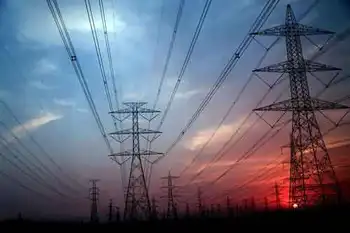
Australia's energy transition stalled by stubbornly high demand
MELBOURNE - A more than 200% increase in installed solar power generation capacity since 2018 helped Australia rank sixth globally in terms of solar capacity last year and emerge as one of the world's fastest-growing major renewable energy producers.
However, to realise its goal of becoming a net-zero carbon emitter by 2050, Australia must reverse the trajectory of its energy use, which remains on a rising path in contrast with several peers that have curbed energy use in recent years.
Australia's total electricity consumption has grown nearly 8% over the past decade, compared with contractions over the same period of more than…

